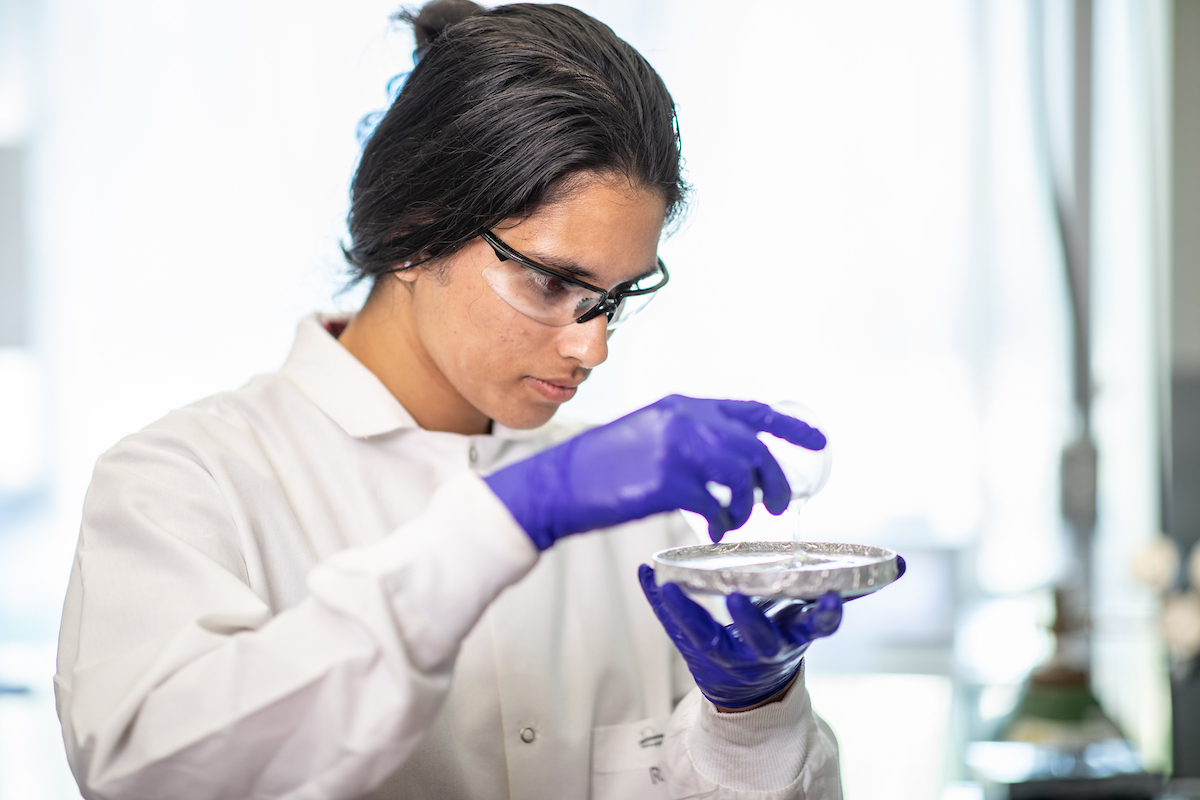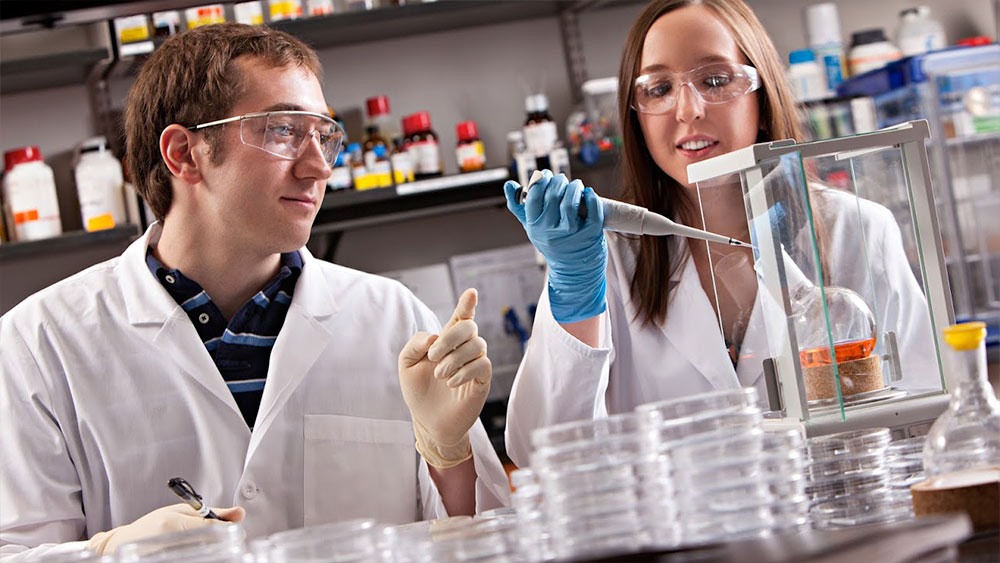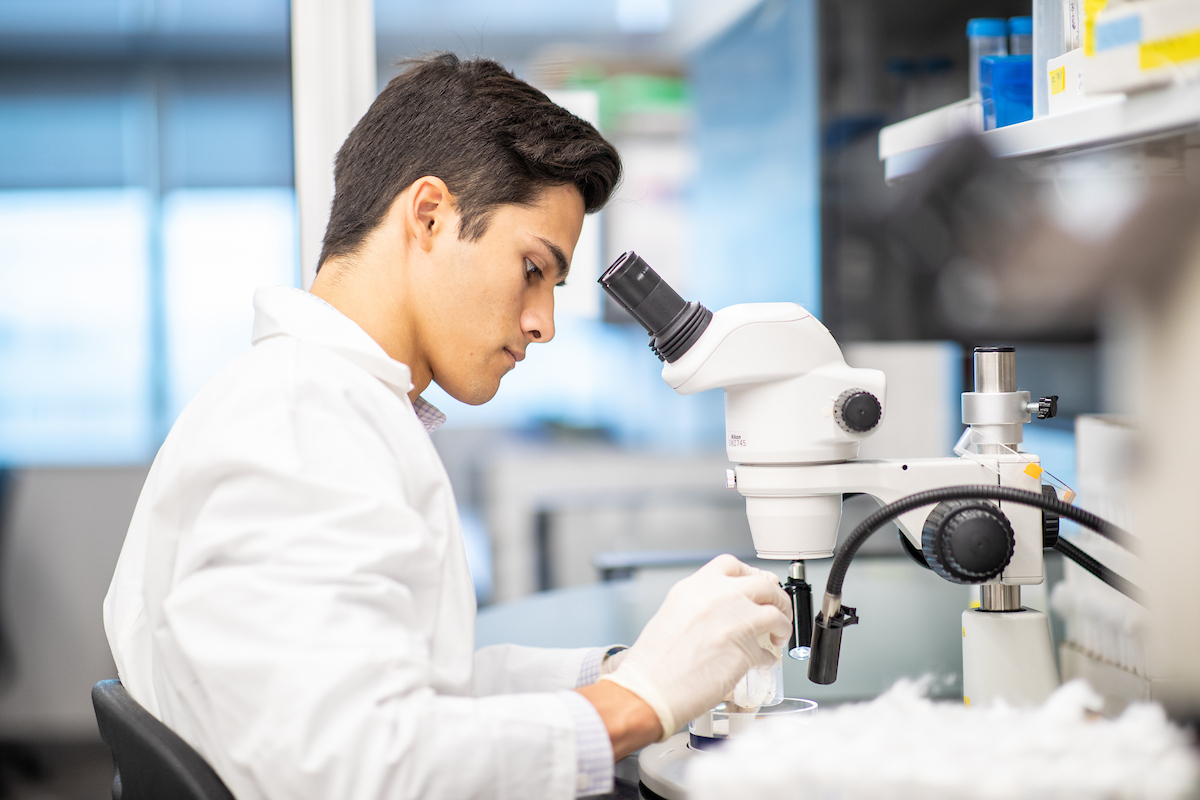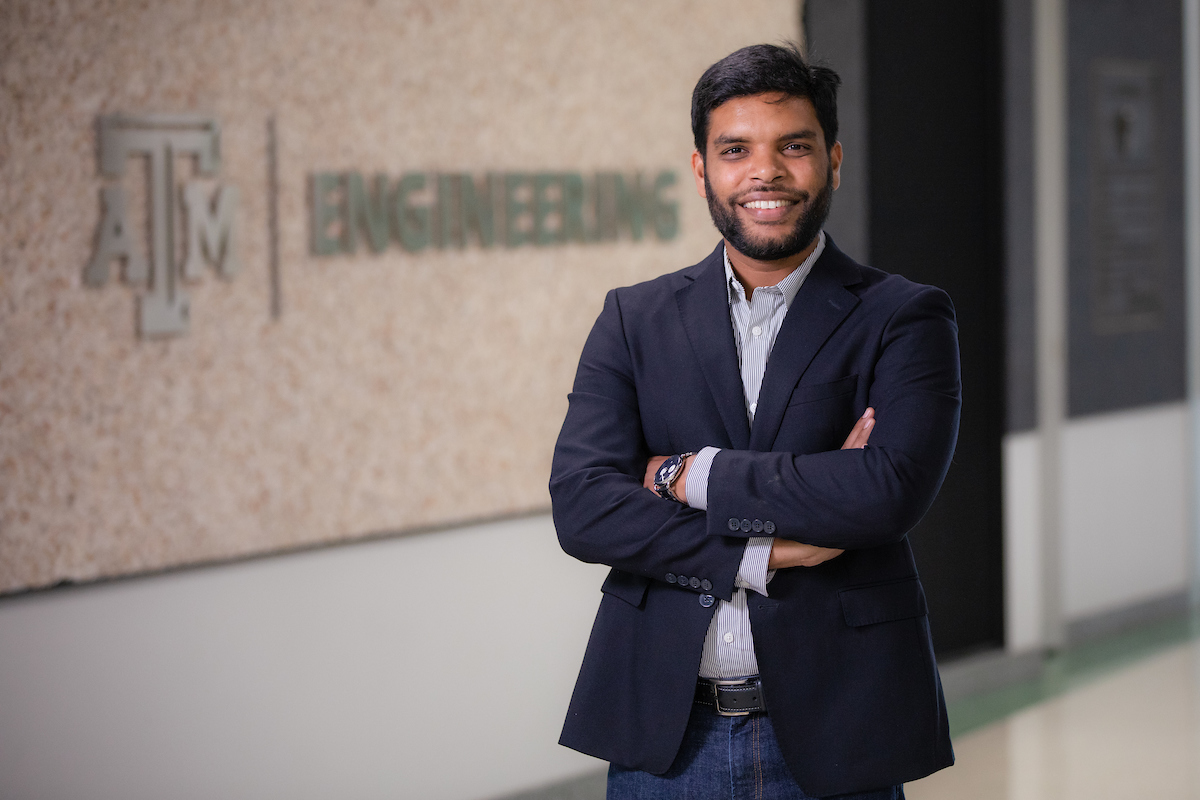Master of Engineering in Biomedical Engineering
They collaborate with industry professionals and clinicians to identify unmet needs, engineer technologies that address these needs, and develop paths-to-market strategies for these technologies.
I'm ready to apply! Request more information

Overview
-
A minimum of 30 semester credit hours of approved courses is required for the Master of Engineering degree.
Students in the program can further their engineering education for the medical device industry with the aim of:
entering the medical device industry
changing their careers to the medical device industry, or
enhancing their technical and management skills.
-
The M.Eng. curriculum is designed to create engineering leaders through a combination of coursework and a comprehensive immersion experience in industry or in the clinical setting.
Each student is paired with an advisor to develop a tailored training toward different aspects of the biomedical product life cycle.
Student concurrently pursue certification in various topics, such as quality engineering for regulated medical technologies, project management or entrepreneurship.
View Masters Degree Plan Visit our Graduate Handbook
-
Funding Overview
Biomedical engineering at Texas A&M University provides multi-year funding offers to all admitted doctoral students. Master’s level students can be considered for assistantships at any point in their degree. All applicants are evaluated for funding opportunities using their EngineeringCAS application.
Students who receive funding for graduate school generally receive one or more types of financial assistance. All offers of admission and funding require that students identify a research supervisor.
More information on Funding and Fellowships
Obtaining a Master of Engineering in Biomedical Engineering at Texas A&M gave me the skills needed to apply technical concepts to design and develop medical devices. The fabrication and prototyping methods, device development strategies, and modeling and simulation techniques that I learned have all had a strong impact on my career within industry.
Degree Highlights
Questions? Email stormyk@tamu.edu.


